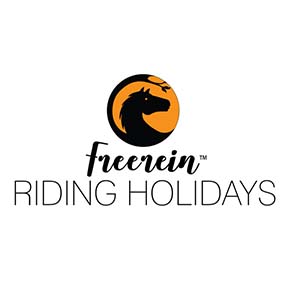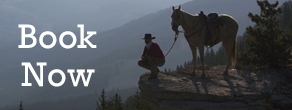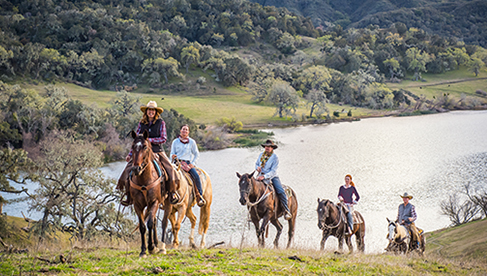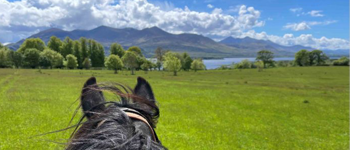Leave No Trace for Equestrians: Adopt the Ethic
by Deb Balliet, CEO
Equine Land Conservation Resource
It was the experience of a lifetime. I knew it would be a great trip, but I had no idea how exceptional it would be.
What was not to like? I was signed up for a weeklong trip to Montana’s Lolo National Forest with a group of 11 other horsemen and three instructors, all who love the great outdoors. Sure, a five day class on the Leave No Trace (LNT) Principles in order to receive the Master Educator designation was intimidating. Would I do something to make me look foolish or unprepared in front of the others? Would my understanding and teaching of the principles be satisfactory?
In the end, much was gained including new friends, a stronger land ethic, much therapeutic laughter, five spiritual days in the Rocky Mountains, wonderful memories and credentials as a LNT Horse Use Master Educator.
So what is this LNT stuff anyway?
Leave No Trace is a program, yes. But mostly it is a way of living or an ethic. An ethic is a set of principles by which you guide your activity. Leave No Trace is not a set of rules. It is a personal commitment to good stewardship of the land. Those who practice LNT have a way of using and interacting with the land with as little impact as possible. The ultimate goal of LNT can be described in this way: if someone comes to that point on the land after you, there is little to no indication that you were there. That person feels as if they have arrived on pristine land. Those who practice LNT strive to leave no visible signs of their visit.
Officially, the Leave No Trace Center for Outdoor Ethics is “an educational nonprofit organization dedicated to the responsible enjoyment and active stewardship of the outdoors by all people worldwide. The Leave No Trace program encourages responsible, non-motorized outdoor activities with minimal impact on public recreational areas. The program is designed to assist outdoor enthusiasts with their decisions about how to reduce their impacts when they hike, camp, picnic, snowshoe, run, bike, hunt, paddle, ride horses, fish, ski or climb. The program strives to educate all those who enjoy the outdoors about the nature of their recreational impacts as well as techniques to prevent and minimize such impacts.”
Why Practice LNT?
You could practice LNT just because it is the right thing to do, but you might get into it more because there are numerous benefits to you. Some public agencies offer discounts for camping, forest and park access if you have taken a LNT course. Check with your local, state and federal land managers to see if this applies or to institute it. Another reason is to protect water quality.
LNT ethics help protect the water we drink every day. And it helps us preserve water in quantities needed to sustain the populations of humans, plants, and animals on the planet. Do it for you, your kids, your grandkids and their kids.
A more immediate advantage is to help ensure continued access for equestrian users of public & private land. If we, as equestrians, are good stewards, we will continue to be invited to use the land for competitive or recreational purposes. If we pollute the water or erode the soils, leave trash or disrespect other land users and recreationists, we may be uninvited.
Furthermore, taking or teaching a LNT Horse Use course can be used to meet your USPC Land Conservation Standards.
Principles of the LNT Ethic
Leave No Trace has seven principles. To give you an idea of the LNT program, here is a description of one LNT Principle:
1. Dispose of Waste Properly This applies to human and equine waste. A basic tenant to remember goes along the lines of carry in/carry out or dispose of garbage in provided trash containers. Even if you believe something is biodegradable, consider how long it might take for it to decompose and “leave no trace” behind. Consider these decomposition rates:
Orange Peels……………………………………………………………One to two years
Plastic Bag………………………………………………………………10 to 20 years
Aluminum Can…………………………………………………………..80 to 100 years
Plastic Bottle…………………………………………………………….Indefinite
There are accepted methods of disposing of human waste in the wilderness. If sanitary facilities are provided, use them. “Cat holes” are the generally accepted practice for individual use. You can learn more about “how to pee in the woods” on the LNT web site.
Whenever possible, spread out horse manure so it will more quickly decompose. At a trail head or a heavy use parking lot, use manure facilities if provided or carry it home with you. Prepare in advance to have a shovel/fork and muck bucket if you do not want to have the manure in the horse area of your trailer. Land owners/managers, fellow recreationists and spectators will appreciate your consideration of others.
Learn More
You can learn more about LNT skills and ethics by reading the LNT web site, or attending an LNT class. Additionally, LNT offers numerous articles, publications and handbooks. Equestrians are encouraged to take the Horse Use or Pack & Saddle Stock class and obtain the LNT Horse use Skills & Ethics booklet. There are three levels of courses offered:
• Awareness Class (1 hour to 1 day)
• Train the Trainer Class (1 to 2 days) or
• Leave No Trace Master Educator course
The Awareness course provides the attendee with general information and a good understanding of the skills and principles. The Train the Trainer course goes more in depth and those completing the course satisfactorily are qualified to teach Awareness classes. Master Educator courses are an intensive 5-day course and those successfully completing the course are approved to teach all levels of LNT classes.
You can learn more about Leave No Trace for horse use and LNT skills and ethics at [url=http://www.lnt.org]http://www.lnt.org[/url] or from the Equine Land Conservation Resource at [url=http://www.elcr.org]http://www.elcr.org[/url].
For decades, hunters and anglers have worked to protect the land that is essential for their sport and hobby through organizations such as the Wild Turkey Federation, Trout Unlimited and the Boone & Crockett Club. It is time for equestrians to step up their efforts for land conservation. After all, ‘leaving your mark’ can be overrated.




